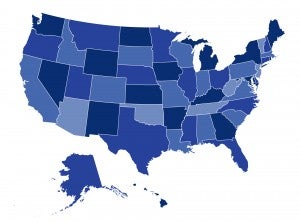Swimming against the Tide: Policies in State-Based Marketplace States Help Counter Negative Trends in Uninsurance Rates

The latest U.S. Census data show the uninsured rate for nonelderly adults is rising, including among middle- and higher-income people who do not qualify for Affordable Care Act premium subsidies. Such an increase is partly attributable to policies implemented by the Trump administration to undermine the ACA. CHIR’s Olivia Hoppe explains that when it comes to individual market enrollment, however, national numbers mask significant differences in state-to-state performance.




